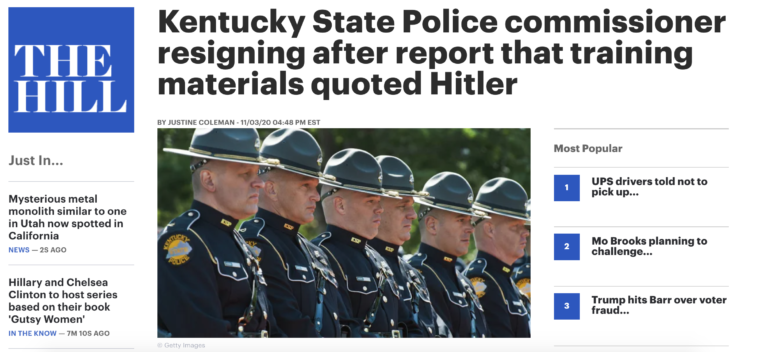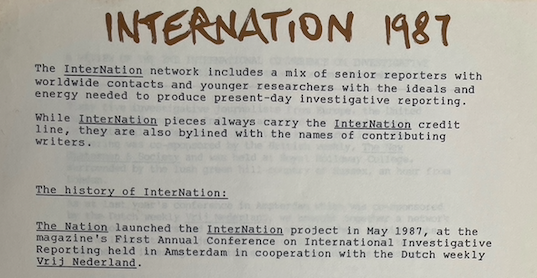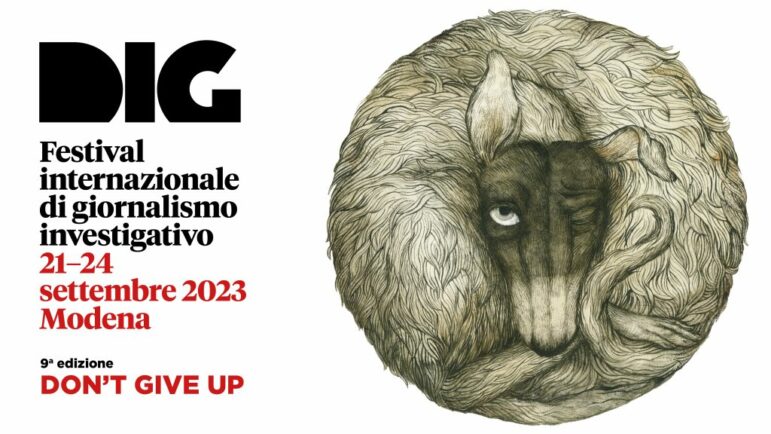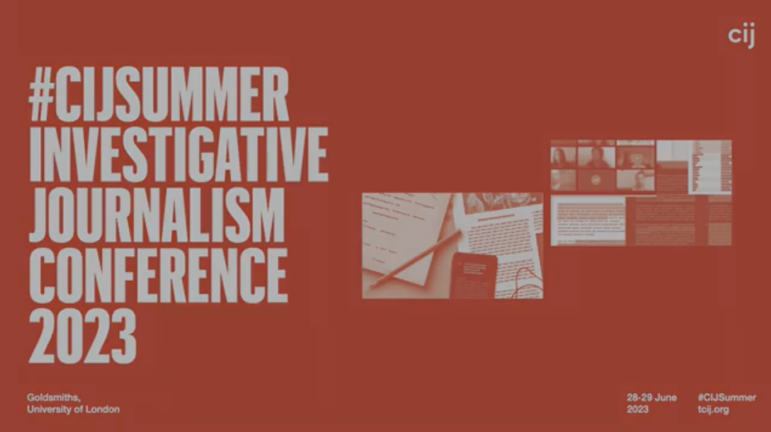The Teen Muckraker Who Exposed Police Training Materials Quoting Hitler
Read this article in
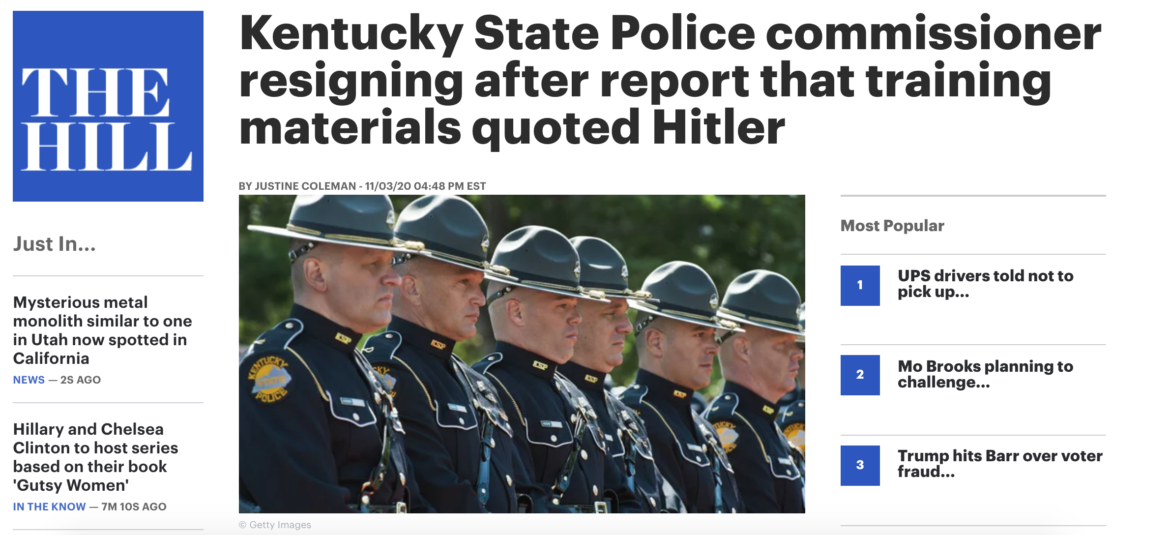
Screenshot: The Hill
On October 30, the student news site of duPont Manual High School in Louisville, Kentucky, in the United States, published a bombshell of an investigation: While training officers, the Kentucky State Police had used a slideshow that quoted Adolf Hitler. The reporters behind the story were 16-year-old Satchel Walton and his younger brother. On the day the student site published the story, Satchel decided to quiet his nerves by going to play cards with a friend in a park. But soon, his phone rang: The governor’s office was calling and wanted to offer a comment.
The brothers first learned about the slideshow from their dad, an attorney who was working on a case representing someone who had been shot by a police officer in eastern Kentucky. The legal team gathered the training slides that featured quotes from Hitler and Confederate General Robert E. Lee [leader of the pro-slavery Southern army in the US Civil War] as part of the discovery in that case. When he saw the slides, Satchel immediately knew it was an important story.
“I thought that it needed to be out there and it needed to be out there quick. And so I said, ‘I can do that,’” says Satchel, speaking over Zoom from his family’s attic. “Louisville’s been the center of protests about racial justice after Breonna Taylor was killed in March. My thought was this was related to police training, the key part of which was that they were too aggressive and that they were racist in quoting Hitler and Lee.”
This video demonstrates that clicking Hitler’s name in the presentation leads to a Goodreads page. Credit: Manual RedEye, a student news publication for duPont Manual High School in Louisville, Kentucky.
The brothers worked with a student editor and journalism teacher to report the story over two weeks. The hardest part was getting a response from the Kentucky State Police. That took “lots and lots of phone calls and emails” to get a comment, Satchel says. The Kentucky State Police said that the quotes were included for their “content and relevance” and that the slideshow had not been used since 2013.
After the Waltons’ reporting gained international attention, the Kentucky State Police commissioner resigned. The governor’s office also launched a review of all State Police training materials.
For his next story, Satchel got some assistance from Reveal’s To Protect and Slur Reporting Network, which documents law enforcement officers who are members of extremist groups on Facebook. Satchel’s new report, published this week, shows how a Kentucky law enforcement training video used this year features a Nazi symbol in a clip from an anti-Semitic video produced by a neo-Nazi media company. To help with his reporting, Reveal shared information with Satchel about specific Kentucky officers who have been involved with extremist groups online. “We could use that information to demonstrate that it’s not just something that happens behind closed doors,” Satchel says.
Satchel’s not sure whether he’ll go into a career in journalism — he has other interests, such as helping organize action around the climate crisis. But reporting these stories has felt important.
“I’m certainly dedicated to reporting the truth, to getting important information out to people,” Satchel says. “I also think having (President Donald) Trump, from when I was in sixth grade to now, talking about the ‘fake news media’ inspired me a bit to prove him wrong.”
This story was originally published in the Reveal newsletter and is republished here with permission.
Additional Reading
10 Tips for Investigating Police Misconduct
How They Did It: Building a Database of Police Use of Force in the US
Webinar: Investigating the Police: Reporting Tips & Tools

Sarah Mirk is a visual journalist and a digital engagement producer for Reveal from The Center for Investigative Reporting. A GIJN member based in California, Reveal produces a podcast and radio show, a weekly newsletter and narrative, visual and data reporting on its website.

